Special New Faculty Welcome Issue
Welcome to these faculty members who have joined us in recent months:
 Shalamar Armstrong, Assistant Professor of Soil Conservation and Management, Agronomy. Shalamar holds a bachelor’s degree in plant and soil science from Southern University, a master’s in soil fertility from Alabama A&M University, and a doctorate in agronomy from Purdue. Upon completion of his doctorate, Shalamar spent eight months at the National Soil Erosion Laboratory on Purdue’s campus, where his research focus was watershed modelling to predict nutrient loss from agricultural field. Currently, the overarching objective of his research program is to determine the agronomic, environmental, and economic benefits of cover crop inclusion within conventional and alternative nitrogen management systems on multiple scales: plot, field, and watershed. The impact of Shalamar’s research program has been recognized by several awards and numerous invited presentations to share his research findings to farmers, agricultural commodity groups, extension agents, and state/government soil conservation agents. Shalamar Armstrong, Assistant Professor of Soil Conservation and Management, Agronomy. Shalamar holds a bachelor’s degree in plant and soil science from Southern University, a master’s in soil fertility from Alabama A&M University, and a doctorate in agronomy from Purdue. Upon completion of his doctorate, Shalamar spent eight months at the National Soil Erosion Laboratory on Purdue’s campus, where his research focus was watershed modelling to predict nutrient loss from agricultural field. Currently, the overarching objective of his research program is to determine the agronomic, environmental, and economic benefits of cover crop inclusion within conventional and alternative nitrogen management systems on multiple scales: plot, field, and watershed. The impact of Shalamar’s research program has been recognized by several awards and numerous invited presentations to share his research findings to farmers, agricultural commodity groups, extension agents, and state/government soil conservation agents.
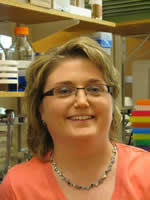 Amanda Deering, Clinical Engagement Assistant Professor, Food Science. Amanda joined Food Science in the fall of 2013 as a Research Assistant Professor. She earned her bachelor’s degree in biology and master’s degree in plant biology from Central Michigan University. She completed her doctorate at Purdue University in food microbiology and food safety specializing in fresh produce food safety. Her research focuses on examining internalization of human pathogenic bacteria in plants, as well as routes of contamination that can contribute to plants harboring pathogenic bacteria. Amanda works closely with industry to develop and test novel sanitization treatments that can be used for fresh produce. She is also involved in research and Extension activities related to preventing foodborne illness associated with cantaloupe. Amanda Deering, Clinical Engagement Assistant Professor, Food Science. Amanda joined Food Science in the fall of 2013 as a Research Assistant Professor. She earned her bachelor’s degree in biology and master’s degree in plant biology from Central Michigan University. She completed her doctorate at Purdue University in food microbiology and food safety specializing in fresh produce food safety. Her research focuses on examining internalization of human pathogenic bacteria in plants, as well as routes of contamination that can contribute to plants harboring pathogenic bacteria. Amanda works closely with industry to develop and test novel sanitization treatments that can be used for fresh produce. She is also involved in research and Extension activities related to preventing foodborne illness associated with cantaloupe.
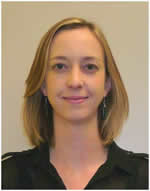 Marisa Erasmus, Assistant Professor of Animal Sciences, Animal Well-Being. Marisa completed her bachelor’s degree in animal biology and her master’s degree in animal and poultry science at the University of Guelph in Ontario, Canada. She earned her doctoral degree in animal science from Michigan State University. Her PhD research examined the relationship between fearfulness, feather pecking and meat quality of two genetic lines of turkeys. Following her PhD work, Marisa worked as a research assistant at Michigan State University studying brain activity in relation to fearfulness in turkeys and co-instructing courses in ethics and animal well-being. Marisa’s extension and applied research activities are focused on generating science-based methods for objectively assessing and improving animal well-being and identifying individual animal characteristics that enable animals to cope under different circumstances. Furthermore, her applied research and extension activities are providing guidelines for animal housing and management and increasing awareness of issues pertaining to animal well-being. Marisa Erasmus, Assistant Professor of Animal Sciences, Animal Well-Being. Marisa completed her bachelor’s degree in animal biology and her master’s degree in animal and poultry science at the University of Guelph in Ontario, Canada. She earned her doctoral degree in animal science from Michigan State University. Her PhD research examined the relationship between fearfulness, feather pecking and meat quality of two genetic lines of turkeys. Following her PhD work, Marisa worked as a research assistant at Michigan State University studying brain activity in relation to fearfulness in turkeys and co-instructing courses in ethics and animal well-being. Marisa’s extension and applied research activities are focused on generating science-based methods for objectively assessing and improving animal well-being and identifying individual animal characteristics that enable animals to cope under different circumstances. Furthermore, her applied research and extension activities are providing guidelines for animal housing and management and increasing awareness of issues pertaining to animal well-being.
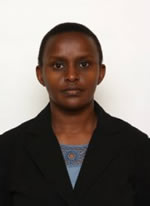 Margaret Gitau, Associate Professor, Agricultural and Biological Engineering. Margaret earned her Ph.D. in agricultural and biological engineering from the Pennsylvania State University in 2003. She also holds M.S. and B.S. degrees in agricultural engineering from the University of Nairobi in Kenya. Before joining the Department of Agricultural and Biological Engineering at Purdue, she was an associate professor at Florida A&M University, where she focused on coastal and near-coastal water resource systems. She also previously held a postdoctoral appointment in agricultural and biological engineering at Purdue. Her research areas include hydrologic and water quality modeling, fate and transport of critical contaminants, understanding of the associated ecological responses, trends and impacts of land use, land management and climate on water resources, sustainable water resources management, and the development of computer and internet-based applications. Margaret Gitau, Associate Professor, Agricultural and Biological Engineering. Margaret earned her Ph.D. in agricultural and biological engineering from the Pennsylvania State University in 2003. She also holds M.S. and B.S. degrees in agricultural engineering from the University of Nairobi in Kenya. Before joining the Department of Agricultural and Biological Engineering at Purdue, she was an associate professor at Florida A&M University, where she focused on coastal and near-coastal water resource systems. She also previously held a postdoctoral appointment in agricultural and biological engineering at Purdue. Her research areas include hydrologic and water quality modeling, fate and transport of critical contaminants, understanding of the associated ecological responses, trends and impacts of land use, land management and climate on water resources, sustainable water resources management, and the development of computer and internet-based applications.
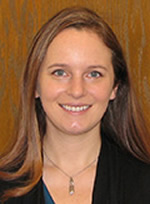 Orla Hart, Clinical Teaching Assistant Professor, Department of Biochemistry. Orla earned a bachelor’s degree in biochemistry from University College Cork, Ireland, and her doctorate in human immunology from Trinity College Dublin, Ireland. She spent a year with Novartis in Basel, Switzerland, where she worked on drug discovery and cell signaling. She was a research associate for the Irish food development authority, Teagasc, where she investigated the effects of pro- and prebiotics on mucosal immune responses, and spent a year with Eli Lilly as a postdoctoral scientist in the Bioproduct R&D division. From there, Orla began to transition to teaching, and she was responsible for establishing a biotechnology program for Medtech College, including designing curricula, teaching and faculty development. Prior to her current role, for the past two years, Orla has been with the Department of Biochemistry here at Purdue as Coordinator of Teaching Labs. She teaches undergraduate laboratory and lecture courses in general biochemistry to non-majors, and is interested in research promoting course-based undergraduate research, instructional innovation, assessment, and engagement. She is also responsible for coordinating the outreach programs of the Department of Biochemistry. Orla Hart, Clinical Teaching Assistant Professor, Department of Biochemistry. Orla earned a bachelor’s degree in biochemistry from University College Cork, Ireland, and her doctorate in human immunology from Trinity College Dublin, Ireland. She spent a year with Novartis in Basel, Switzerland, where she worked on drug discovery and cell signaling. She was a research associate for the Irish food development authority, Teagasc, where she investigated the effects of pro- and prebiotics on mucosal immune responses, and spent a year with Eli Lilly as a postdoctoral scientist in the Bioproduct R&D division. From there, Orla began to transition to teaching, and she was responsible for establishing a biotechnology program for Medtech College, including designing curricula, teaching and faculty development. Prior to her current role, for the past two years, Orla has been with the Department of Biochemistry here at Purdue as Coordinator of Teaching Labs. She teaches undergraduate laboratory and lecture courses in general biochemistry to non-majors, and is interested in research promoting course-based undergraduate research, instructional innovation, assessment, and engagement. She is also responsible for coordinating the outreach programs of the Department of Biochemistry.
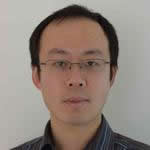 Jian Jin, Assistant Professor, Agricultural and Biological Engineering. Jian received his Ph.D. in Agricultural Engineering from Iowa State University. He earned his master’s degree in Computer Engineering from Denmark Technical University and his bachelor’s degree in Computer Science from Zhejiang University. Prior to joining Purdue, he conducted research at DuPont Pioneer, where he was most recently a Technology Leader working on automatic phenotyping and sensing and lead a team for the company’s hyperspectral imaging systems for automated plant screening. Jian’s major research interest at Purdue is to build the next generation automatic crop plant phenotyping system, along with machine vision, data processing, statistics, and big data modeling. He also has interests in other areas of agricultural sensing, broadly defined, and in automation and robotics in agriculture. Jian Jin, Assistant Professor, Agricultural and Biological Engineering. Jian received his Ph.D. in Agricultural Engineering from Iowa State University. He earned his master’s degree in Computer Engineering from Denmark Technical University and his bachelor’s degree in Computer Science from Zhejiang University. Prior to joining Purdue, he conducted research at DuPont Pioneer, where he was most recently a Technology Leader working on automatic phenotyping and sensing and lead a team for the company’s hyperspectral imaging systems for automated plant screening. Jian’s major research interest at Purdue is to build the next generation automatic crop plant phenotyping system, along with machine vision, data processing, statistics, and big data modeling. He also has interests in other areas of agricultural sensing, broadly defined, and in automation and robotics in agriculture.
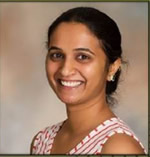 Bhagyashree Katare, Assistant Professor, Agricultural Economics. Bhagyashree earned her bachelor of technology degree in chemical engineering from Nagpur University, India; a master of financial mathematics degree, master of science degree in applied economics and a doctorate in applied economics from the University of Minnesota. During her doctoral program, Bhagyashree was an adjunct faculty member at St. Catherine University and Minneapolis Community and Technical College, where she taught courses in economics and statistics. She has also worked as a consultant for World Bank and Young Lives Project. Bhagyashree’s research interests are in the economics of food, health, nutrition, and particularly on the empirical analysis of consumption behavior related to health outcomes. Her current research centers on the economic determinants of weight gain and the spread of obesity. Her teaching responsibilities include an undergraduate course in agricultural marketing. Bhagyashree Katare, Assistant Professor, Agricultural Economics. Bhagyashree earned her bachelor of technology degree in chemical engineering from Nagpur University, India; a master of financial mathematics degree, master of science degree in applied economics and a doctorate in applied economics from the University of Minnesota. During her doctoral program, Bhagyashree was an adjunct faculty member at St. Catherine University and Minneapolis Community and Technical College, where she taught courses in economics and statistics. She has also worked as a consultant for World Bank and Young Lives Project. Bhagyashree’s research interests are in the economics of food, health, nutrition, and particularly on the empirical analysis of consumption behavior related to health outcomes. Her current research centers on the economic determinants of weight gain and the spread of obesity. Her teaching responsibilities include an undergraduate course in agricultural marketing.
 Michael Mashtare, Assistant Professor, Agronomy. Michael received his bachelor’s degree from the Natural Resources and Environmental Sciences Program and his doctorate from the Interdisciplinary Ecological Sciences and Engineering graduate program and Department of Agronomy at Purdue. He was also a USDA AFRI NIFA Postdoctoral Fellow at Purdue. His research interests center around two complementary areas: 1) understanding the biogeochemical interactions regulating the fate, availability/bioaccessibility, and transport of emerging organic and inorganic chemicals in urban- and agro-ecosystems; and 2) the use of municipal, industrial and manufacturing residuals/wastes to reclaim, remediate, or restore degraded soil and water at the field and landscape scales. Michael Mashtare, Assistant Professor, Agronomy. Michael received his bachelor’s degree from the Natural Resources and Environmental Sciences Program and his doctorate from the Interdisciplinary Ecological Sciences and Engineering graduate program and Department of Agronomy at Purdue. He was also a USDA AFRI NIFA Postdoctoral Fellow at Purdue. His research interests center around two complementary areas: 1) understanding the biogeochemical interactions regulating the fate, availability/bioaccessibility, and transport of emerging organic and inorganic chemicals in urban- and agro-ecosystems; and 2) the use of municipal, industrial and manufacturing residuals/wastes to reclaim, remediate, or restore degraded soil and water at the field and landscape scales.
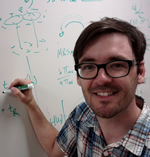 Gordon McNickle, Assistant Professor, Botany and Plant Pathology. Gord earned a bachelor’s degree in ecology and philosophy from The University of Toronto in Ontario, Canada, and a doctorate in ecology, from The University of Alberta in Edmonton, Alberta, Canada. He spent 2 years as a National Sciences and Engineering Research Council postdoctoral fellow at the University of Illinois at Chicago, where he focused on the application of evolutionary game theory to plant-plant competition. He spent another 2 years as a Banting postdoctoral fellow at Wilfrid Laurier University in Waterloo, Ontario applying game theoretic models to predict boreal forest dynamics. His research is focused on how interactions among plants and other biota shape the structure and function of ecological communities. He uses evolutionary game theory to model these interactions and his work relies on a mixture of experimental and theoretical approaches. On a broader scale, his research program seeks a set of universal principles that govern all plant ecosystems from tundra to the tropics. Gordon McNickle, Assistant Professor, Botany and Plant Pathology. Gord earned a bachelor’s degree in ecology and philosophy from The University of Toronto in Ontario, Canada, and a doctorate in ecology, from The University of Alberta in Edmonton, Alberta, Canada. He spent 2 years as a National Sciences and Engineering Research Council postdoctoral fellow at the University of Illinois at Chicago, where he focused on the application of evolutionary game theory to plant-plant competition. He spent another 2 years as a Banting postdoctoral fellow at Wilfrid Laurier University in Waterloo, Ontario applying game theoretic models to predict boreal forest dynamics. His research is focused on how interactions among plants and other biota shape the structure and function of ecological communities. He uses evolutionary game theory to model these interactions and his work relies on a mixture of experimental and theoretical approaches. On a broader scale, his research program seeks a set of universal principles that govern all plant ecosystems from tundra to the tropics.
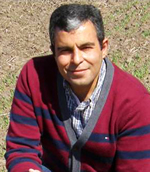 Mohsen Mohammadi, Assistant Professor, Department of Agronomy. Mohsen received his bachelor’s degree in agronomy and plant breeding, as well as the MSc in plant genetics and breeding from the University of Tehran. He earned a doctorate in plant science from the University of Alberta. In his PhD, he identified novel dehydration responsive genes in wheat roots using global transcriptional profiling. Prior to joining Purdue Agronomy, he has been a traditional and marker-based breeder at wheat breeding program in Iran and the barley breeding project at the University of Minnesota. At the University of Minnesota, he worked on genome-wide association studies of food and malt quality traits in the US barley germplasm and evaluating accuracies of genome-wide prediction schemes for improvement of malt quality traits. He also developed a genome-wide breeding algorithm to predict genetic variance expected from biparental crosses. In Purdue Agronomy, he took over Professor Herbert Ohm’s Small Grains Breeding Program, and his role is to provide learning environments for genetics, quantitative genetics, and breeding. Mohsen Mohammadi, Assistant Professor, Department of Agronomy. Mohsen received his bachelor’s degree in agronomy and plant breeding, as well as the MSc in plant genetics and breeding from the University of Tehran. He earned a doctorate in plant science from the University of Alberta. In his PhD, he identified novel dehydration responsive genes in wheat roots using global transcriptional profiling. Prior to joining Purdue Agronomy, he has been a traditional and marker-based breeder at wheat breeding program in Iran and the barley breeding project at the University of Minnesota. At the University of Minnesota, he worked on genome-wide association studies of food and malt quality traits in the US barley germplasm and evaluating accuracies of genome-wide prediction schemes for improvement of malt quality traits. He also developed a genome-wide breeding algorithm to predict genetic variance expected from biparental crosses. In Purdue Agronomy, he took over Professor Herbert Ohm’s Small Grains Breeding Program, and his role is to provide learning environments for genetics, quantitative genetics, and breeding.
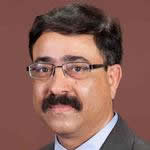 Dharmendra Saraswat, Associate Professor, Agricultural and Biological Engineering. Dharmendra received a bachelor’s degree in agricultural engineering from the University of Allahabad; a master’s degree in agricultural engineering from the Indian Agricultural Research Institute (IARI), New Delhi and a Ph.D. degree in food, agricultural and biological Engineering from The Ohio State University. Prior to coming to Purdue, Dharmendra was a faculty member at the University of Arkansas, a scientist at the Indian Council of Agricultural Research, New Delhi, India and an assistant professor at Chandra Shekhar Azad University of Agriculture & Technology, Kanpur, India. His research focus is on using information and communication technologies for solving production issues in field crops and management of natural resources. He accomplishes research goals through multi-disciplinary collaborations, development of cloud-based tools & decision support systems and delivery of research-based information using native mobile applications. His other expertise includes watershed simulation modeling, spatial and temporal modeling using remote sensing and geographic information systems and data collection/analysis from field and unmanned aerial systems-based sensors. Dharmendra Saraswat, Associate Professor, Agricultural and Biological Engineering. Dharmendra received a bachelor’s degree in agricultural engineering from the University of Allahabad; a master’s degree in agricultural engineering from the Indian Agricultural Research Institute (IARI), New Delhi and a Ph.D. degree in food, agricultural and biological Engineering from The Ohio State University. Prior to coming to Purdue, Dharmendra was a faculty member at the University of Arkansas, a scientist at the Indian Council of Agricultural Research, New Delhi, India and an assistant professor at Chandra Shekhar Azad University of Agriculture & Technology, Kanpur, India. His research focus is on using information and communication technologies for solving production issues in field crops and management of natural resources. He accomplishes research goals through multi-disciplinary collaborations, development of cloud-based tools & decision support systems and delivery of research-based information using native mobile applications. His other expertise includes watershed simulation modeling, spatial and temporal modeling using remote sensing and geographic information systems and data collection/analysis from field and unmanned aerial systems-based sensors.
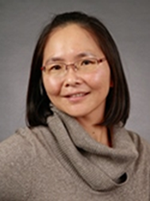 Hui-Hui Wang, Assistant Professor, Youth Development and Agricultural Education. Hui-Hui earned her master’s degree in environmental education from Southern Oregon University and a doctorate in curriculum and instruction in science education from the University of Minnesota. She was an Extension assistant professor for three years at University of Minnesota, where she focused on developing STEM integrated youth programs and professional development programs for Extension educators. Her research focuses on STEM integration, inquiry-based instruction, and experiential learning in science and agriculture education that across both formal and non-formal settings, with specific interest in the cognitive bases of STEM learning (e.g. how people learn in and across STEM disciplines and settings, such as the skills, knowledge and cognitive models needed to support STEM integration). Dr. Want plans to have a course developed by Fall 2016 focusing on creating a classroom curriculum that includes STEM integration and agricultural education. Hui-Hui Wang, Assistant Professor, Youth Development and Agricultural Education. Hui-Hui earned her master’s degree in environmental education from Southern Oregon University and a doctorate in curriculum and instruction in science education from the University of Minnesota. She was an Extension assistant professor for three years at University of Minnesota, where she focused on developing STEM integrated youth programs and professional development programs for Extension educators. Her research focuses on STEM integration, inquiry-based instruction, and experiential learning in science and agriculture education that across both formal and non-formal settings, with specific interest in the cognitive bases of STEM learning (e.g. how people learn in and across STEM disciplines and settings, such as the skills, knowledge and cognitive models needed to support STEM integration). Dr. Want plans to have a course developed by Fall 2016 focusing on creating a classroom curriculum that includes STEM integration and agricultural education.
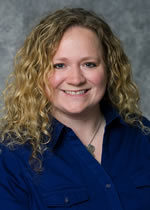 Stacy Zuelly, Assistant Professor, Animal Sciences, Meat Science. Stacy received her bachelor’s degree in animal science from Michigan State University, her master’s in animal and food science from the University of Kentucky, and her doctorate in animal science from the University of Illinois. Before joining the faculty at Purdue, she was an assistant professor in the Department of Animal Science at South Dakota State University. Her focal point for teaching is processed meats and the relationship between carcass composition, processing, and product quality. In Extension, she plans to host educational opportunities for processor and consumers and she is excited to work with small processors in the state to help them optimize meat quality and palatability. Stacy’s teaching responsibilities include an introduction to meat science course. Stacy Zuelly, Assistant Professor, Animal Sciences, Meat Science. Stacy received her bachelor’s degree in animal science from Michigan State University, her master’s in animal and food science from the University of Kentucky, and her doctorate in animal science from the University of Illinois. Before joining the faculty at Purdue, she was an assistant professor in the Department of Animal Science at South Dakota State University. Her focal point for teaching is processed meats and the relationship between carcass composition, processing, and product quality. In Extension, she plans to host educational opportunities for processor and consumers and she is excited to work with small processors in the state to help them optimize meat quality and palatability. Stacy’s teaching responsibilities include an introduction to meat science course.
|